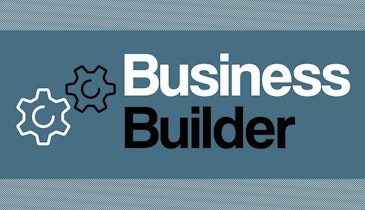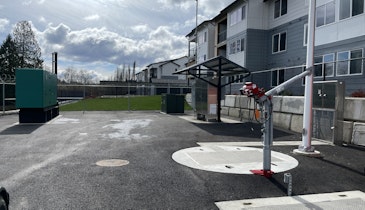Without the Big Toys
I’m responding to your column about being in the onsite business but not necessarily with earth-moving equipment (Breaking Ground, Onsite Installer, March 2011). When I met with a business counselor back in 1985 or so to discuss what I could do to make my small construction business more profitable, he gave me two choices: grow or specialize.
Heeding his advice was simple. I was not ready to grow any larger than I already was. So I specialized in septic system troubleshooting and repairs. In a vacation area here in the mountains of New Hampshire, many folks would find themselves in trouble when the toilet in their second home backed up.
Sometimes the initial solution was simply a frozen line or root buildup that could be solved immediately, but often the repair would be more involved and require the small equipment that had become my trademark. If I needed larger equipment I could call on any number of local guys with far larger toys.
Occasionally, when I need something for a large or very specialized job, I rent from my local equipment dealer. I’ve already passed the typical retirement age with no intention of throwing in the towel for a while. My business has evolved, primarily into private road and driveway repair and maintenance. I have several tractors, but nothing over the four tons that I can haul behind my 1-ton truck.
After 20,000-plus hours on utility-sized equipment I’ve become a reasonably skilled operator, but it is my problem-solving skills, whether it be for septic systems, wet basements, or washed-out roads, that keep my services in demand and my overhead low.
Russ Lanoie
Conway, N.H.
It Depends on the Market
I was reading your article in the March issue of Onsite Installer inviting discussion on whether it is better to own your own equipment or job out the digging portion of the work. I believe the decision would have to be based on the market a company serves.
In our service area, if we tried to make a living doing only technical service and O&M, we would have to expand our service area exponentially, and even then we would have a tough time being profitable, since the large majority of systems in this area are standard gravity-fed systems. However, in areas with a very high population base and a high number of complex systems, a strictly O&M shop, such as Residential Sewage Treatment in the feature article, definitely has its place.
In our market, we are forced to keep all onsite services in-house to be a viable competitor in the industry. We do pumping, system installs and repairs, drain cleaning, jetting, and camera inspections.
Owning all of the basic equipment allows a company to control the market they serve. A large majority of customers in the onsite sector are basically one-time customers. While it is true they may use our services more than once over a number of years, it will likely not be more than once every three years or more. This means that each and every customer is very valuable, especially in areas with a limited population base. If we subcontract or refer work to a competitor, most likely the customer will call that competitor if he needs the same service in the future.
We are a very small company but still own a complete basic assortment of necessary equipment, including a vacuum truck, backhoe, mini-excavator, dump truck, sewer and drain cleaning machines, and jetting and video inspection equipment. We rent small specialized items like concrete saws, compactors, jackhammers, and core drills. We also occasionally rent larger excavators, skid-steer loaders, and other heavy machinery as necessary.
As a footnote, I really appreciate the Onsite Installer magazine, especially the issues that feature basic one- or two-man backhoe outfits such as ours. We have been involved in the building construction industry for as long as I can remember, but the builder’s trade magazines feature projects and companies that are so complex or large that they are hard to relate to, thus the magazines seldom get much attention.
I appreciate your willingness to portray the onsite industry for what it is: Primarily small to mid-sized backhoe services installing mostly standard systems along with a number of more complex systems. Please keep your focus and continue to make the publication something that we as small businesses can relate to.
Kendall Unruh
Western Septic & Excavation
Buhl, Idaho





